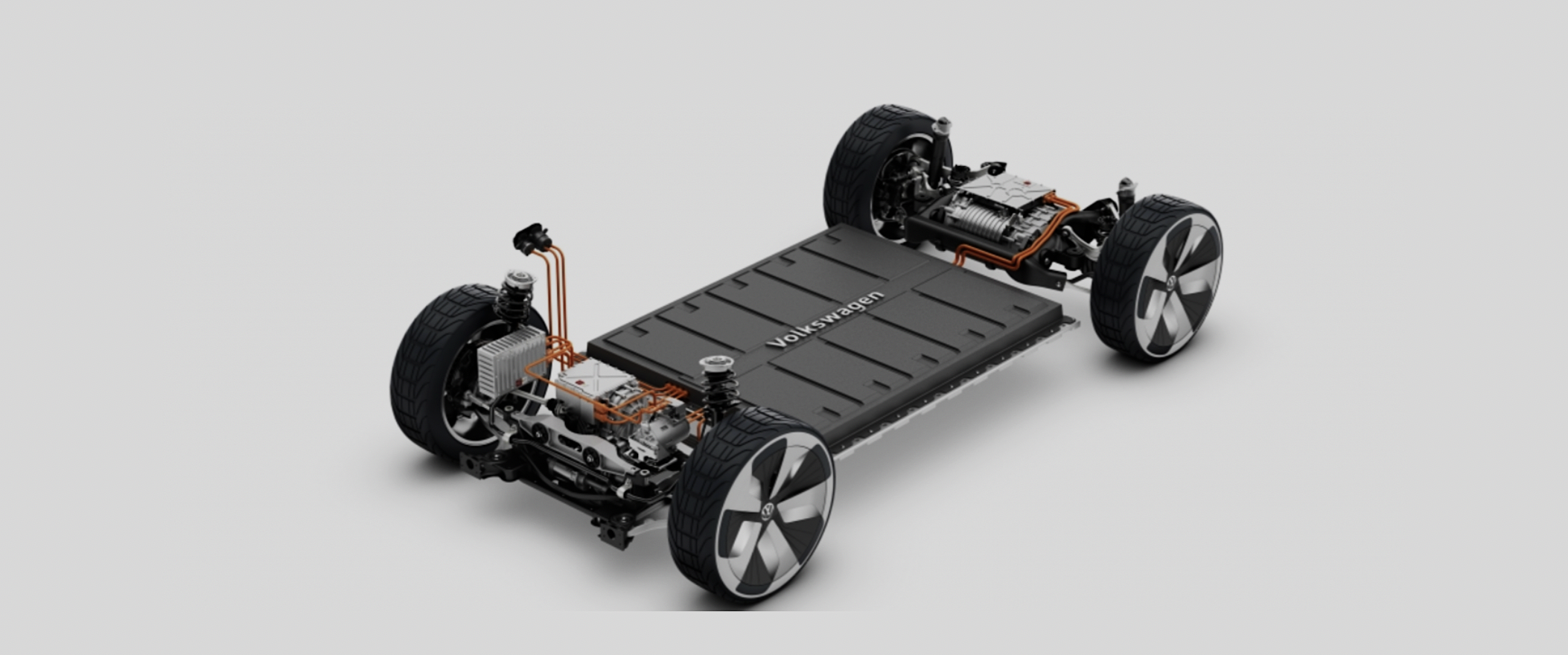In September of last year, Volkswagen unveiled the electric vehicle platform they developed called the MEB. In a rare move in the auto-industry, they decided to open it to other manufacturers. Today, they announced the first user of the platform.
German EV startup e.GO Mobile will be using Volkswagen’s MEB platform. The idea is VW will save EV startups R&D costs and provide critical components at a lower cost. While this benefits EV startups (early-stage electric vehicle manufacturers that produce less than 25k cars a year), Volkswagen also stands to gain longer-term if these startups mature into bigger companies and by achieving greater economies of scale in EV manufacturing. Most likely, established automakers like Toyota, GM, etc. will not be interested in the MEB.
Rebuilding VW’s Image
At a basic level, helping bring carbon-free vehicles to market is good PR for a company that is recovering from its 2015 emissions scandal. Helping small manufacturers and promoting the vision of renewable energy and sustainable transportation reflects well on the company and aligns them for the future.
Economies of Scale
Building vehicles off the same platform is widely practiced in the auto-industry. For example, the Toyota Camry and Lexus ES, and Tesla’s Model 3 and Model Y share the same chassis. VW, whose current version of this (Modular Transverse Toolkit) has been used to build over 100 million vehicles, is trying to take standardization one step further with the MEB. EVs allow for even more standardization due a radically simplified design, often referred to as a skateboard, comprised of the battery pack, wheels, and electric drive train. VW plans to build 150k electric vehicles in 2020. If other manufacturers use the MEB platform, VW can enjoy further EoS, as they plan to outfit 16 of their factories to build electric cars by the end of 2022.
Hedging Bets
With many startups developing their own EVs, VW has the opportunity to be the arms supplier to companies that will build new car experiences and bring about wider EV adoption. A small automaker, doesn’t have to go through the same manufacturing growing pains that Tesla faces, but also doesn’t own the entire stack, which affords Tesla some advantages. VW has the potential for many companies to standardize on their system, and they can achieve economies of scale to produce their own cars for less, but they are only selling lower-margin parts to other brands.
EV Expansion
Volkswagen has stated they will spend about 50 billion dollars on e-mobility (including electric cars and autonomy) by 2023, and they aim to have an EV equivalent for all models across all 12 brands by 2030. They have reportedly committed $48B to battery supply contracts as of May 2018. They don’t currently have the capacity to execute them, but both these announcements signal they are serious about the EV push.
In an interview with Autonews, Volkswagen CEO Herbert Diess said, “We will be aggressive on the pricing. We will be much lower than Tesla, but we have all the huge economies of scale and the car is specifically designed now [building on the MEB versus adapting gas/diesel platforms].” That represents why VW is so intent on seeing the MEB succeed. The cheaper they can get manufacturing, the better they can compete with Tesla. This is especially important following reports that after reverse engineering the Model 3, Audi and Porsche are currently unable to produce cars of the same quality profitably.
Disclaimer: We actively write about the themes in which we invest or may invest: virtual reality, augmented reality, artificial intelligence, and robotics. From time to time, we may write about companies that are in our portfolio. As managers of the portfolio, we may earn carried interest, management fees or other compensation from such portfolio. Content on this site including opinions on specific themes in technology, market estimates, and estimates and commentary regarding publicly traded or private companies is not intended for use in making any investment decisions and provided solely for informational purposes. We hold no obligation to update any of our projections and the content on this site should not be relied upon. We express no warranties about any estimates or opinions we make.
